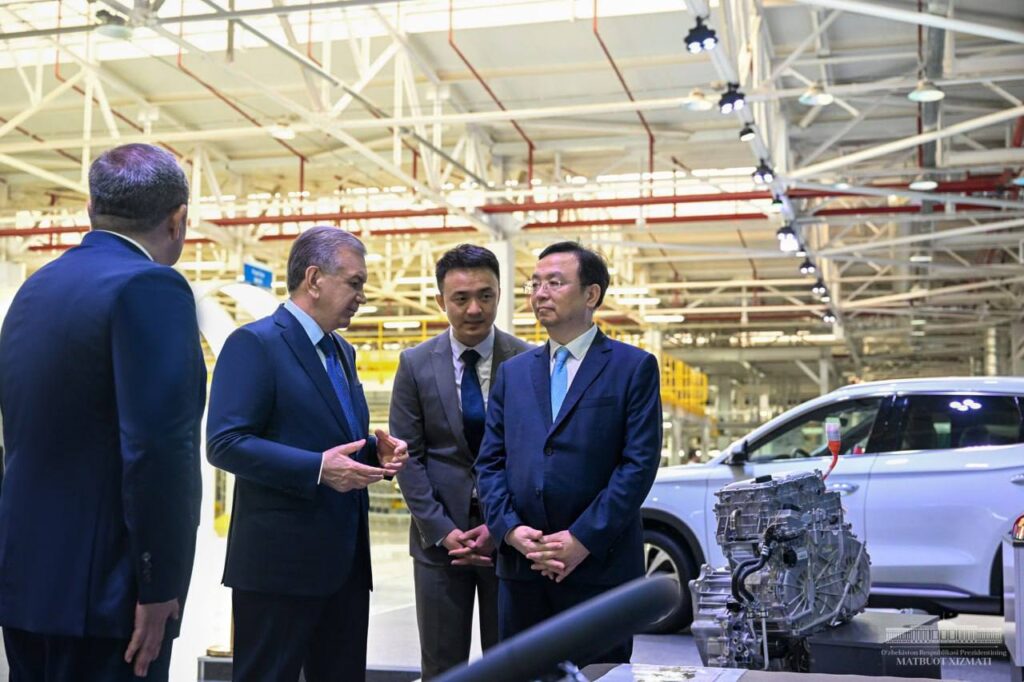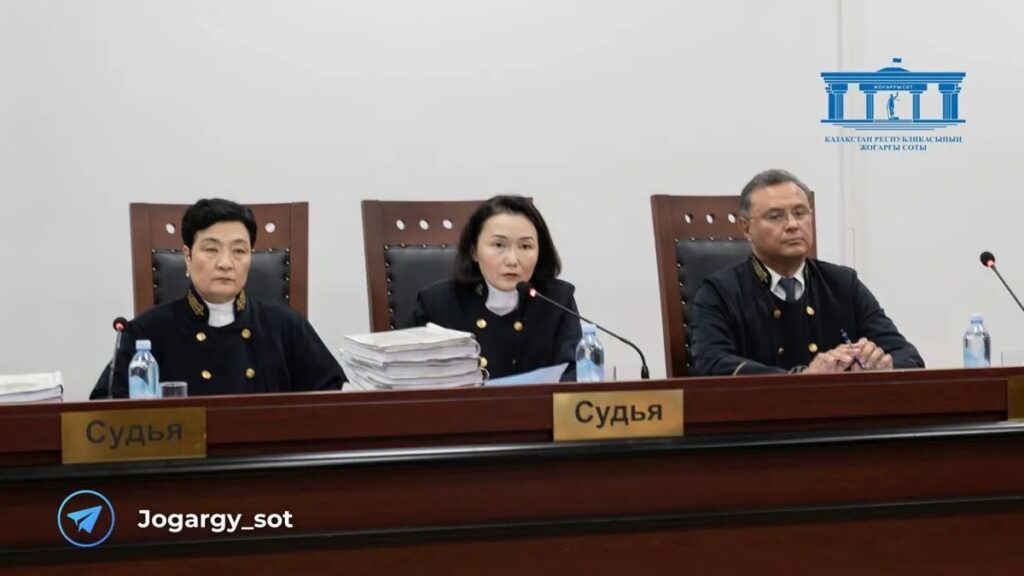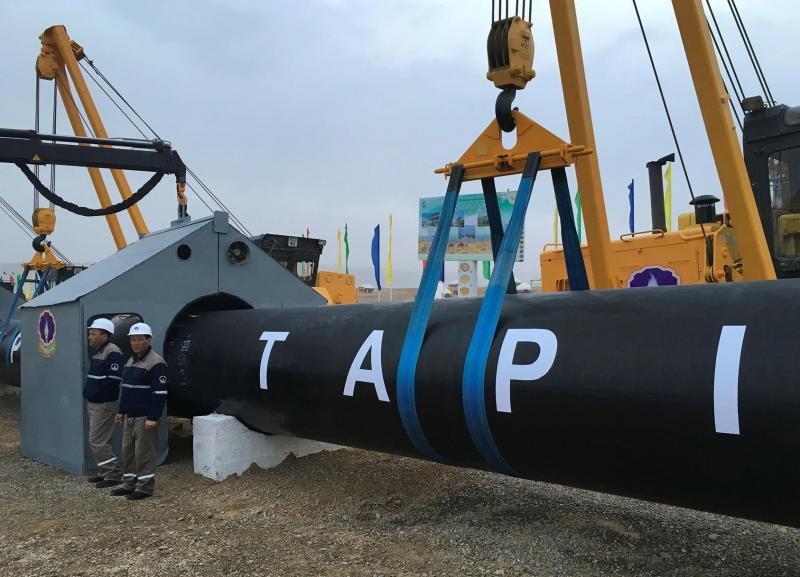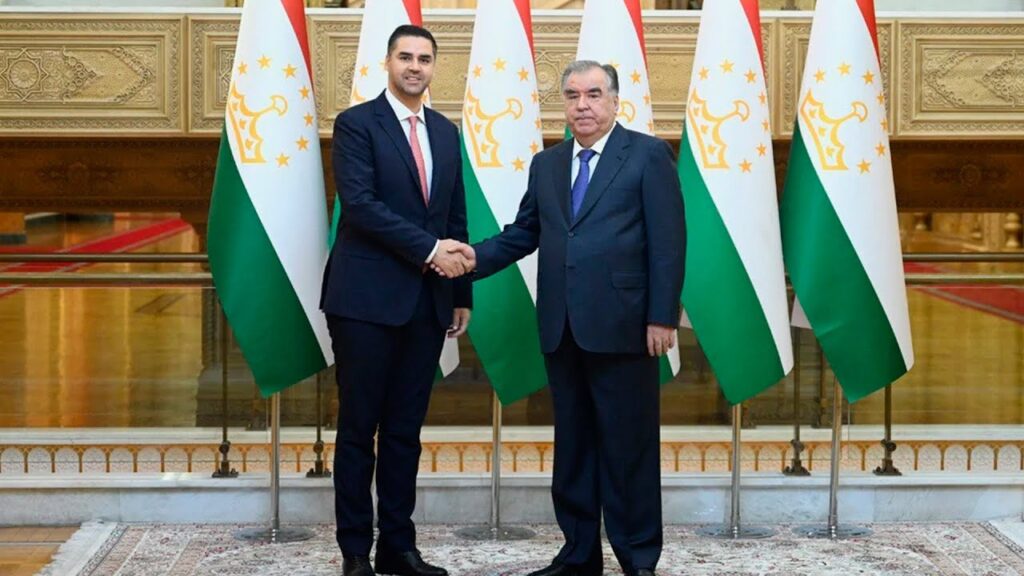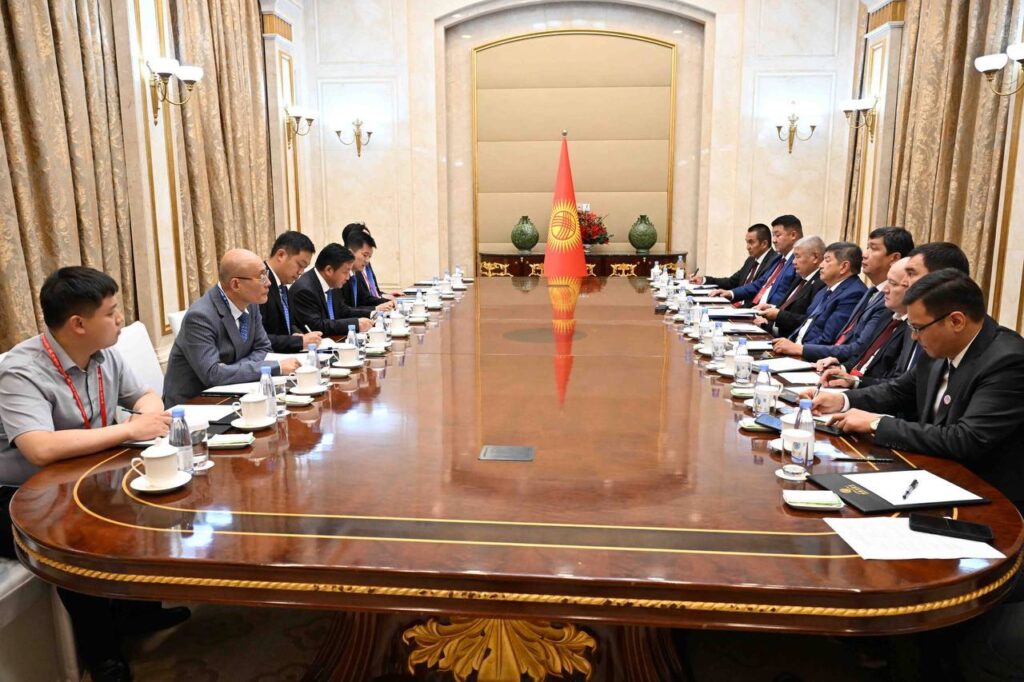First Electric Vehicles Roll Off China’s BYD Assembly Line in Uzbekistan
On June 27, Uzbekistan President Shavkat Mirziyoyev joined his Chinese partners in witnessing the start of production of electric vehicles at the BYD Uzbekistan Factory in Jizzakh.
The visit marked the completion of first phase of the project which will have the capacity to manufacture 50,000 electric vehicles per year. Costing $160 million, the plant is furnished with modern equipment and robotic systems from China, as well as a laboratory for high-precision testing of the geometric dimensions of electric vehicles.
The plant currently manufactures the Chazor and Song Plus Champion and President Mirziyoyev left his signature on the first electric car that rolled off the assembly line.
In the coming years, the range of models will expand. During the second phase, costing $300 million, manufacture will increase to up to 200 thousand electric vehicles per year, and in the third stage, at a further cost of $500 million, up to 500 thousand vehicles.
In tandem with the rising volume of vehicles produced at the plant, local production of related parts will also increase. Starting with bumpers, glass, varnished and plastic parts, plans are in place to establish new enterprises to produce batteries, electric motors, aluminium parts, tires, and seats.
The plant currently employs 1.2 thousand people and once all three stages are complete, the number of jobs will reach 10 thousand.


